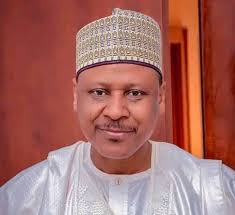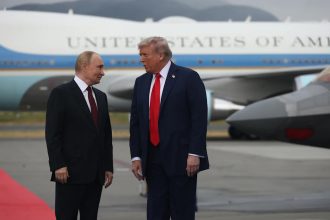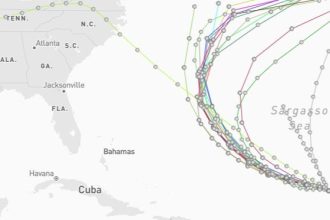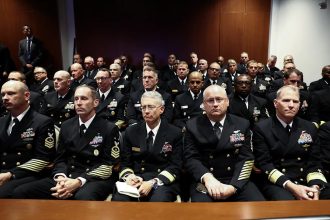The Federal Government has reaffirmed its commitment to fairness, equity, and justice in the allocation of national projects, appointments, and opportunities under President Bola Tinubu’s administration, amid growing criticism and allegations of regional bias.
In a press statement issued on Sunday by the Minister of Information and National Orientation, Mohammed Idris, the government dismissed claims of marginalisation, insisting that all six geopolitical zones have received equitable attention from the Tinubu-led administration.
“In the light of recent insinuations, half-truths and fake information being circulated, we find it expedient to make it abundantly clear that President Bola Tinubu’s administration has been guided, at all times, by the principles of fairness, justice, and equity in the distribution of federal government projects, appointments, and opportunities across all six geopolitical zones of our country,” Idris said.
He maintained that infrastructure and development projects have been fairly distributed across the country, citing ongoing initiatives in roads, railways, power, and healthcare.
“Contrary to the perception being pushed in some quarters, this administration has demonstrated uncommon commitment to balanced development and inclusivity since assuming office.
“The distribution of capital projects under President Bola Tinubu is equitable. No region is playing a second fiddle or ignored,” Idris stated.
He highlighted the establishment of Regional Development Commissions in all six geopolitical zones and pointed to major infrastructure projects like the Lagos–Calabar Coastal Highway in the South and the Badagry–Sokoto Highway in the North as examples of geographic balance.
“While the Coastal Highway courses through the South, the Badagry–Sokoto Highway, under construction, traverses majorly the North.
“This sense of balance runs through all the major infrastructure projects being implemented today,” he noted.
The minister revealed that over ₦250,000 jobs are expected to be created through the various infrastructure projects across the country, including ₦150 billion and ₦100 billion light rail projects in Kano and Kaduna respectively, as well as metroline developments in Lagos and Ogun States.
He said, “The administration has secured funding for light rail projects in Kano and Kaduna states to the tune of ₦150bn and ₦100bn, respectively.
“The metroline projects in Lagos and Ogun states form part of the government’s effort to develop Nigeria’s light rail infrastructure. Collectively, these projects are expected to create over 250,000 jobs nationwide.”
There has also been progress on rail rehabilitation in the Eastern Corridor and extensive work on healthcare infrastructure, with over 1,000 primary health care centres already refurbished.
According to verifiable figures provided by the Ministry, “the Northwest region has received the largest share of project approvals, amounting to ₦5.97trn—over 40% of total approvals.
“Other allocations include ₦2.41trn for the South South, ₦1.13trn for North Central, ₦604bn for the South West (excluding Lagos), ₦407bn for the South East, and ₦400bn for the North East.”
Breaking down some of the key road projects, the government listed major ongoing works in both North and South regions, including; “The Lagos–Calabar Coastal Highway, spanning 750 km, has 175 km currently under construction across Lagos, Cross River, and Akwa Ibom States.
“Work is also ongoing on the Sokoto–Badagry Superhighway, which stretches 1,068 km, with 378 km actively being developed in the Kebbi and Sokoto sections.
“Similarly, 118 km of the 465 km Trans-Sahara Highway is under construction in Ebonyi State. Meanwhile, the 439 km Akwanga–Jos–Bauchi–Gombe Road is undergoing a redesign from flexible to rigid pavement to ensure greater durability. Of the combined length of these infrastructure projects, 52 percent is located in the northern region of the country, while the southern region accounts for 48 percent.
“In the northern part of Nigeria, major projects include the dualisation of the Sokoto–Gusau–Funtua–Zaria Road (275 km) at a cost of ₦824 billion, and the Abuja–Kaduna–Kano Road (350 km) at ₦764 billion. Other key northern roads under development include the 256 km BUA Tax Credit Road in Jigawa, Katsina, and Kano; the 156 km Zaria–Hunkuyi Road; the 49 km Kano Northern Bypass; and 100.9 km of the Kano–Maiduguri Road. Additionally, road construction is ongoing on 100 km of roads in Bama and Dikwa (Borno), 110 km on the Damaturu–Maiduguri Road, and 76 km on the Malando Road in Kebbi. Other strategic links include the 250 km dualised Benue–9th Mile Road with a cost of $958 million, the 86 km Lokoja–Okene Dualisation, and the Kaduna–Katsina Roads (Sections 1 and 2), valued at ₦150bn.
“In the southern region, projects of note include the 8.5 km Lagos–Ibadan section estimated at ₦33bn, the 12 km dualised Lagos–Sagamu Road, and the Oyo–Ogbomoso–Ilorin stretch with an allocation of ₦146 billion. The rehabilitation of Carter, Third Mainland, and Eko Bridges is ongoing at a cost of ₦120bn.
“In the South East, major works are being undertaken on the Enugu–Onitsha Road, with 107 km being executed via the MTN Tax Credit Scheme at a cost of ₦202 billion, and another 72 km under the CBC initiative at ₦150bn.
“Other key projects include the 36 km Enugu–Abakaliki Road, the 17.5 km dualised access road to the Second Niger Bridge at ₦175bn, and the 61 km dualised Lokpanta–Enugu Road estimated at ₦100 billion.
“In the South South region, construction continues on the 30 km Eleme–Onne Road with a cost of ₦156bn, the 9.7 km dualised Eket Bypass valued at ₦76 billion, and Section 2 of the East–West Road at ₦186 billion.
“The Nembe–Brass Road is under development with a budget of ₦150 billion, and the Lokoja–Benin Dualisation project is receiving ₦167bn in funding.
“In Delta, the Second Niger Bridge access road spans 17 km and is being dualised at a cost of ₦146 billion, while in Rivers State, the Bodo–Bonny Road, which includes 35 km of road and 12 bridges, is being constructed at ₦200bn.”
The statement also addressed the administration’s broader energy and industrial strategy, citing the revival of the 255MW Kaduna Power Plant, progress on the AKK Gas Project, and increased oil exploration in the Kolmani region.
“Kano-Maradi rail line, inherited at five percent has received huge funding support from the government making it attain 67 percent within a short time,” Idris noted.
He further argued that President Tinubu’s development focus is national rather than regional. “President Tinubu is building national infrastructure, not local trophies.
“Lagos is rightly upgraded as Nigeria’s commercial hub, but the Northwest holds the lion’s share of approvals. This proves that all regions are receiving fair consideration,” he said.
On appointments, the minister stated Tinubu has consistently appointed capable Nigerians from every part of the country, guided by competence and inclusivity rather than sectional considerations.
According to him, initiatives like the creation of the Federal Ministry of Livestock Development and the establishment of five new Regional Development Commissions underscore the administration’s commitment to meeting the diverse needs of the country.
“President Bola Tinubu has not only kept faith with Nigerians but has proven himself to be a fair, pragmatic, and consequential reformer.
“His leadership is inclusive, his vision is unifying, and his commitment to equity and justice is unwavering. Nigerians can rest assured that under his watch, no part of this country will be left behind,” the statement concluded.









